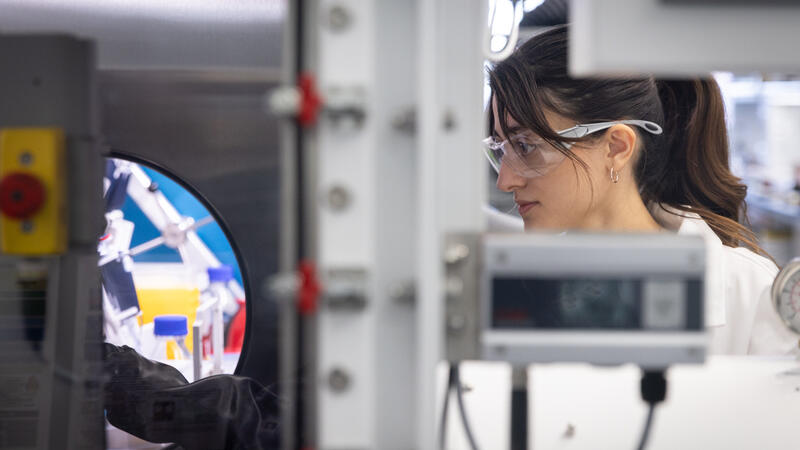News
Autonomous lab accelerates discoveries to harness power of microbes
Bioenergy crops are a potential source of renewable alternatives for many petroleum-derived products. Great Lakes Bioenergy Research Center (GLBRC) scientists at Michigan State University (MSU) have now devised a system to coax plants into producing higher amounts of two valuable organic materials, terpenes and lipid droplets, and package them together inside cells for easy extraction.
Lager beer is cold, crisp, dry — and worth about half a trillion dollars worldwide. Behind the world’s most popular alcoholic beverage is a yeast adapted to the cold, and hungry for the sugars it will transform into bubbles and booze.
A major goal of the Great Lakes Bioenergy Research Center is to harness the power of microbes to create biofuels. But often, it’s an expensive challenge for scientists to identify the most useful individual variants among thousands of similar microbe strains.
New research on transcriptional pausing, which helps control gene expression in cells, will aid in the understanding of the enzyme RNA polymerase — a key player in the process and an important drug target.
If you’ve ever grown carrots in your garden and puzzled over never once seeing them flower, don’t blame your lack of a green thumb.
Carrots, beets and many other plants won’t flower until they’ve gone through winter. The extended cold gives them the signal to flower quickly once spring arrives, providing the plants an edge in the race to produce seeds.
If environmental engineer Daniel Noguera had his way, he would orchestrate a microbiome to pump out higher-value chemical products.
Five Great Lakes Bioenergy Research Center (GLBRC) researchers have been named to Clarivate Analytics’ 2018 list of “Highly Cited Researchers”.
The organic matter left over after biofuel production is a rich potential feedstock for making additional high-value bioproducts. Analysis of a microbial metabolic network that can break down this conversion residue is a step toward understanding how to engineer microbial communities to optimize production of desired molecules.
An unprecedented comparison of hundreds of species of yeasts has helped geneticists brew up an expansive picture of their evolution over the last hundreds of millions of years, including an analysis of the way they evolved individual appetites for particular food sources that may be a boon to biofuels research.
A compound that has scientists seeing red may hold the key to engineering yeasts that produce better biofuels.





